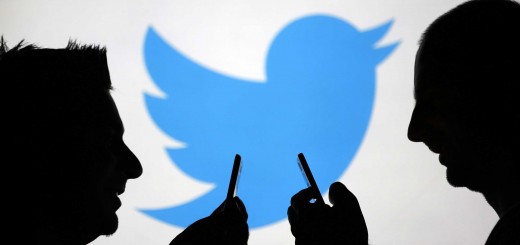Net Neutrality: The debate rages on
Before adding to the ongoing debate on Net neutrality, maybe one must begin by thanking John Oliver and his team for simplifying the geeky notion of Network Neutrality and fuelling debates on it in the US in 2014. The Indian internet diaspora, too, has diligently taken up the task of pursuing this obscure, but critical, issue at hand.
Absolute Net neutrality, per se, is structurally impossible. Networking protocols and networks are designed in a way such that data packets are inherently treated differently. Traffic from an ongoing encrypted bank transaction, and your neighbour’s music video buffering do not have the same priority in the current reign of protocols. As you would have expected, in lieu of the import of a bank transaction this traffic gets a higher priority over buffering video packets. Thus, quality of service (QoS) is maintained. What then is the talk about Net neutrality?
The previously mentioned disparity in traffic is based on the type of data packets and connections, and does not discriminate traffic based on consumers, or the content providers. Whereas, the ongoing debate about Net neutrality is when the internet service providers (ISP’s), in the current debate in India, mainly telecom companies, enter agreements with certain entities, who can be suspected of operating in their vested interest and alter the delivery speed and/or tariff of data traffic.
Net neutrality can be hampered in mainly three ways. Firstly, when content providers (for example, streaming websites like NetFlix) who are backed by big corporations enter deals with the ISP’s by paying an additional fee to carry their traffic faster to users, so that the users do not feel lag or glitch in their reception. While this by itself might seem harmless, it no longer leaves a level-playing field on the Internet. A smaller content provider, with no resources to work out deals with ISP’s will then be slower than the bigger content providers. This, not because the quality of content was poor, but simply because the bigger of the content provider was able to force paid content prioritization. Thus, bending Net neutrality and with it also choking the idea of free market competition in the Internet. While paid prioritization of traffic in this form is not (yet) a predominant problem in India, it soon could be.
The second instance, that Indian users are familiar with is when the ISP’s decide to charge differently for different traffic, based on what applications users use. Instead of making voice calls using the telecom operator’s telephony services, increasingly users are using services VoIP (Voice over Internet Protocol) services like Skype, Viber, and messenger apps like WhatsApp instead of conventional messaging.
Increase in VoIP services instead of conventional telephony is being projected as a factor eating into their revenues of telecom companies. While a part of the claim is true, that the revenue from voice calls or SMS’es are going down, but the per capita 2G and 3G data consumption is steadily increasing in India, and has only added to the revenues even by their own balance sheets.
For instance, Bharti Airtel in its third quarter results posted that “Mobile Data traffic & revenues grow 91.2% and 61.9%, respectively, at the end of December 31, 2014” — a whooping doubling of data traffic. Globally, this trends show no dampening at all. When telecom companies decide to discriminate based on the service used, it’s a violation of Net neutrality. At the infrastructure level, handling all internet traffic would cost the same for ISPs, and this discrimination is a certain dent in Net neutrality.
The final manifestation of Net neutrality, has now seen examples in the form of Internet.org partnering with Reliance communications, and Airtel Zero project. The seemingly philanthropy-driven idea of Internet.org might well be in their makers’ mind for the good, but it severely hampers Net neutrality.
Internet is a corridor of doors, like the space Morpheus and Neo enter along with the Key Maker in The Matrix Reloaded. Just that once you are at one of the door’s of Internet, it is endless and you don’t need additional keys to open subsequent doors. This, in essence, is also the principle of Net neutrality, and that which Internet.org or Airtel Zero projects would kill. In these two projects, the currently disadvantaged users who are not yet accessing the Internet are granted free access to a select few websites.
The traffic charges are paid by the partnering websites, and the users are exposed to a dust-like fraction of the vastness of the Internet. These projects don’t necessarily confine the users from wandering into the rest of the Internet, but give them free access only to a handful of websites and, hence, implicitly restrain them.
Furthermore, these initiatives are targeted at those who have not yet experienced the Internet. And their experience shouldn’t be confined to a corner of the Internet to begin with. Facebook’s initiative, Internet.org, pretends to be an attempt to bring more users into the realm of the Internet, ironically by confining them to Internet.org. “The more we connect, the better it gets,” says the banner on the Internet.org website, but given Facebook’s history of harvesting user data, it is hard to pass philanthropy as the motif here, and one wonders more connections are better for which party.
The empowering nature of the Internet is not merely because it facilitates flow of information, as the advent of radio and television did in the twentieth century. The core trait of the Internet is that it has not only given access to abundant reservoir of information to consumers, but most crucially it has given a level-playing field for the users – to not only consume, but to create, voice and dissent over the Internet. By violating Net neutrality in any of the forms, the core principle of the Internet will be lost. And with it the aspirations of millions, who are yet to experience the Internet, will be trampled.


